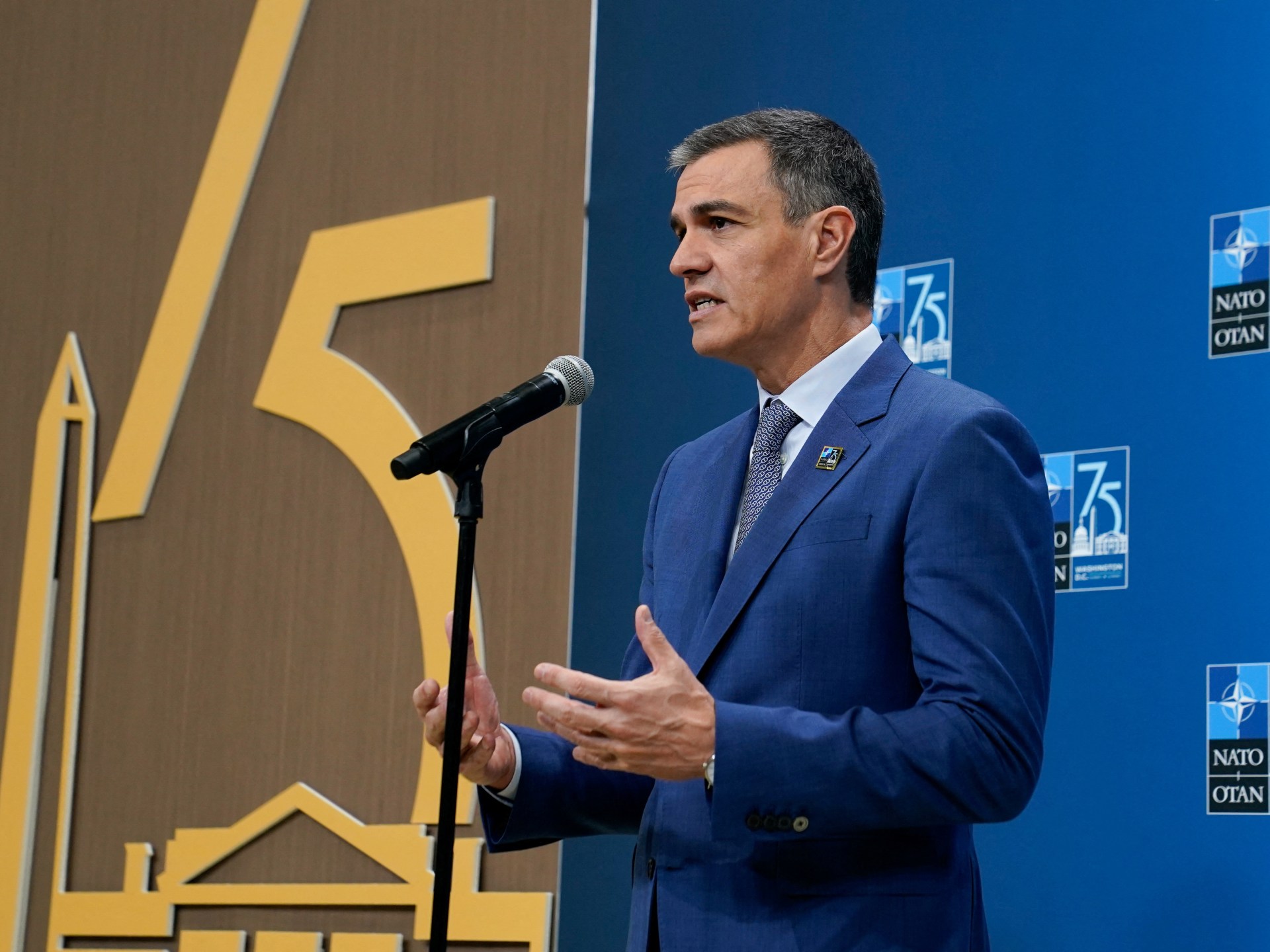Prime Minister Pedro Sanchez urged the alliance to adopt a more flexible framework in a letter he sent to NATO Secretary-General Mark Rutte on Thursday, according to media reports.
The letter requested either a completely exempted or optional target or that Spain be left alone, according to the Reuters and Associated Press news agencies.
A 5% target would be “unfair and counterproductive,” Sanchez wrote, warning that it would undermine efforts by the European Union to establish its own security and defense base. We make the decision to not participate as a sovereign Ally.
Sanchez reaffirmed that Madrid had no desire to halt the upcoming summit’s progress. However, all 32 NATO members must vote in favor of an increase in defense spending, giving Spain the ability to stall or stall the deal.
According to estimates from the alliance, Spain currently spends about 1.28 percent of its GDP on defense. This is its lowest percentage among NATO members. Sanchez has pledged to expedite the nation’s progress toward NATO’s current 2 percent goal, but he contends that going beyond that could harm the welfare state and put infringe on Spain’s overall policy outlook.
Donald Trump, the president of the United States, and others have urged NATO to spread the burden more evenly across the alliance, so the alliance is now pressing for higher spending. Rutte has proposed a new formula that allocates core military spending to 3.5% of GDP and to broader security needs, as suggested by Rutte.
pressure to spend more money on defense
Since Russia’s invasion of 2022, the United States has reportedly contributed 3.38 percent of its GDP to defense in 2024, making it NATO’s largest military contributor and Ukraine’s main supporter. Trump has threatened to withhold support for those who don’t, saying repeatedly that European allies aren’t pulling their weight.
However, Sanchez claimed that rushing to achieve a 5-percent target would make EU states purchase military equipment from outside the bloc, putting strain on the continent’s efforts to increase self-sufficiency in defense.
The political left in Spain also opposes the proposal. The move is opposed by Sanchez’s coalition’s left-leaning Sumar party, while Podemos, who isn’t in government but frequently a key parliamentary ally, also opposes it.
According to Josa Miguel Calvillo, a professor of international relations at the Complutense University of Madrid, “the government will have a very difficult time in the current situation,” according to a Reuters interview.
Italy has also voiced concerns, reportedly seeking to change the new target’s proposed deadline from 2032 to 2035 and to eliminate the requirement to increase spending by 0.2% annually.
Source: Aljazeera

Leave a Reply